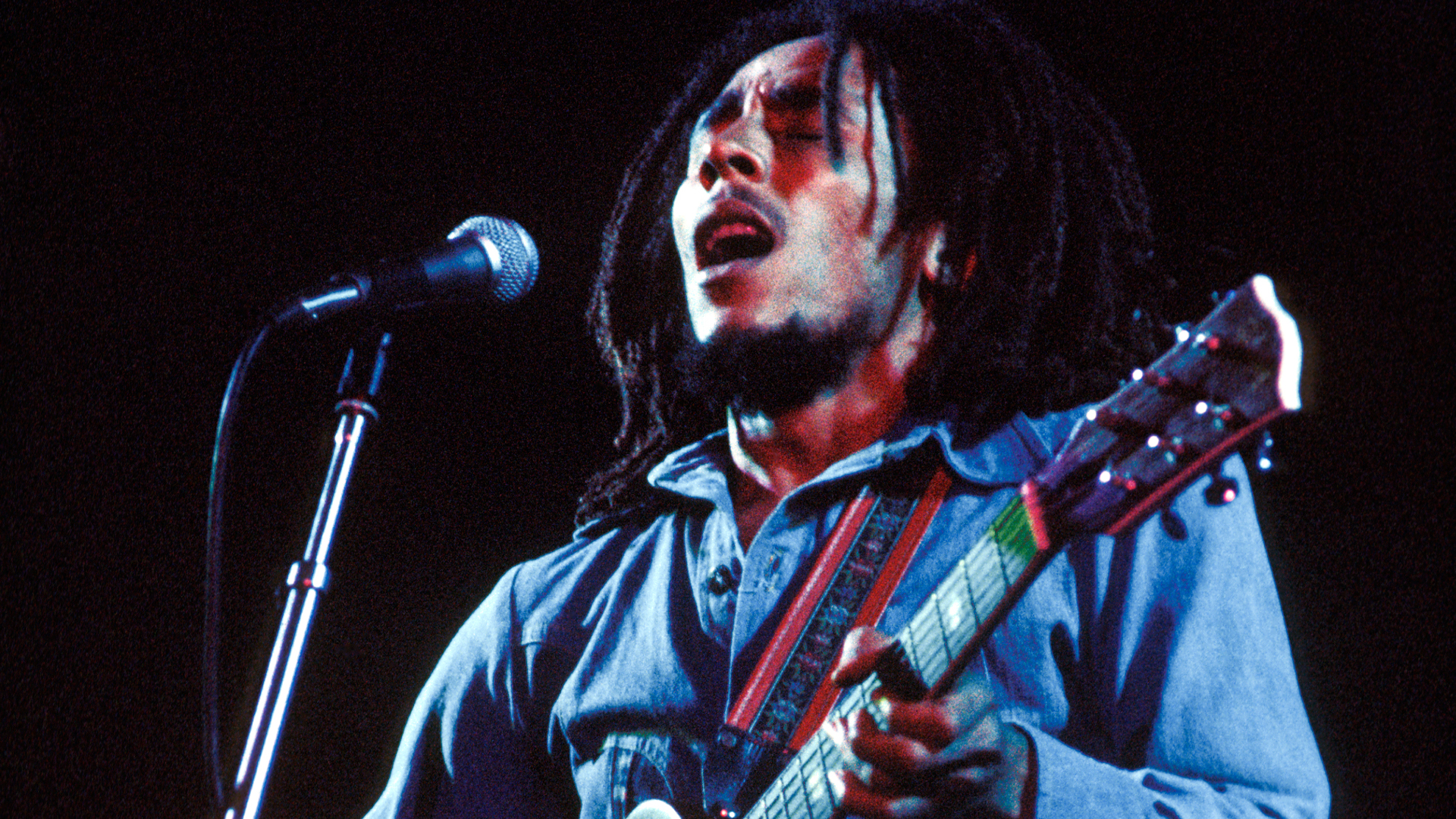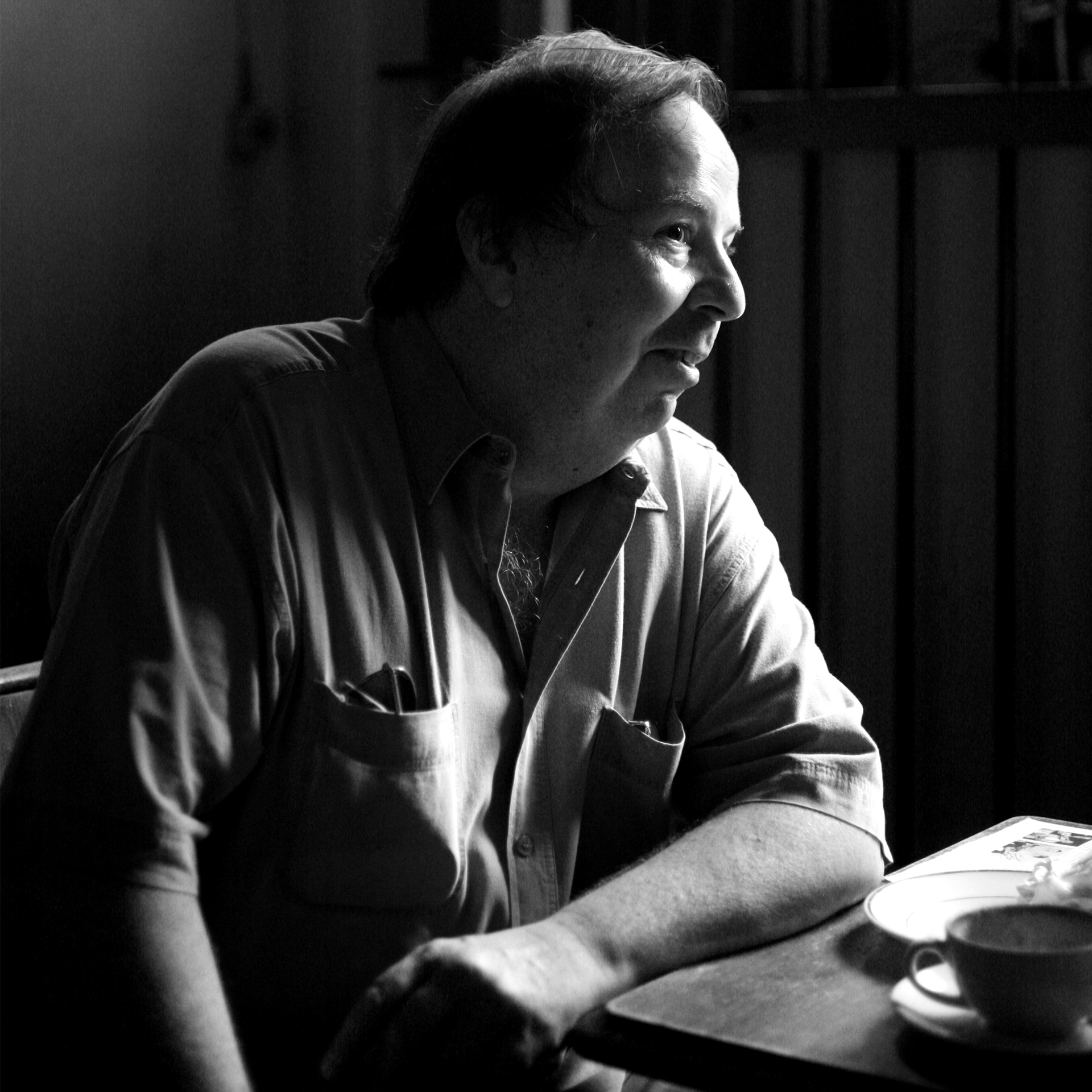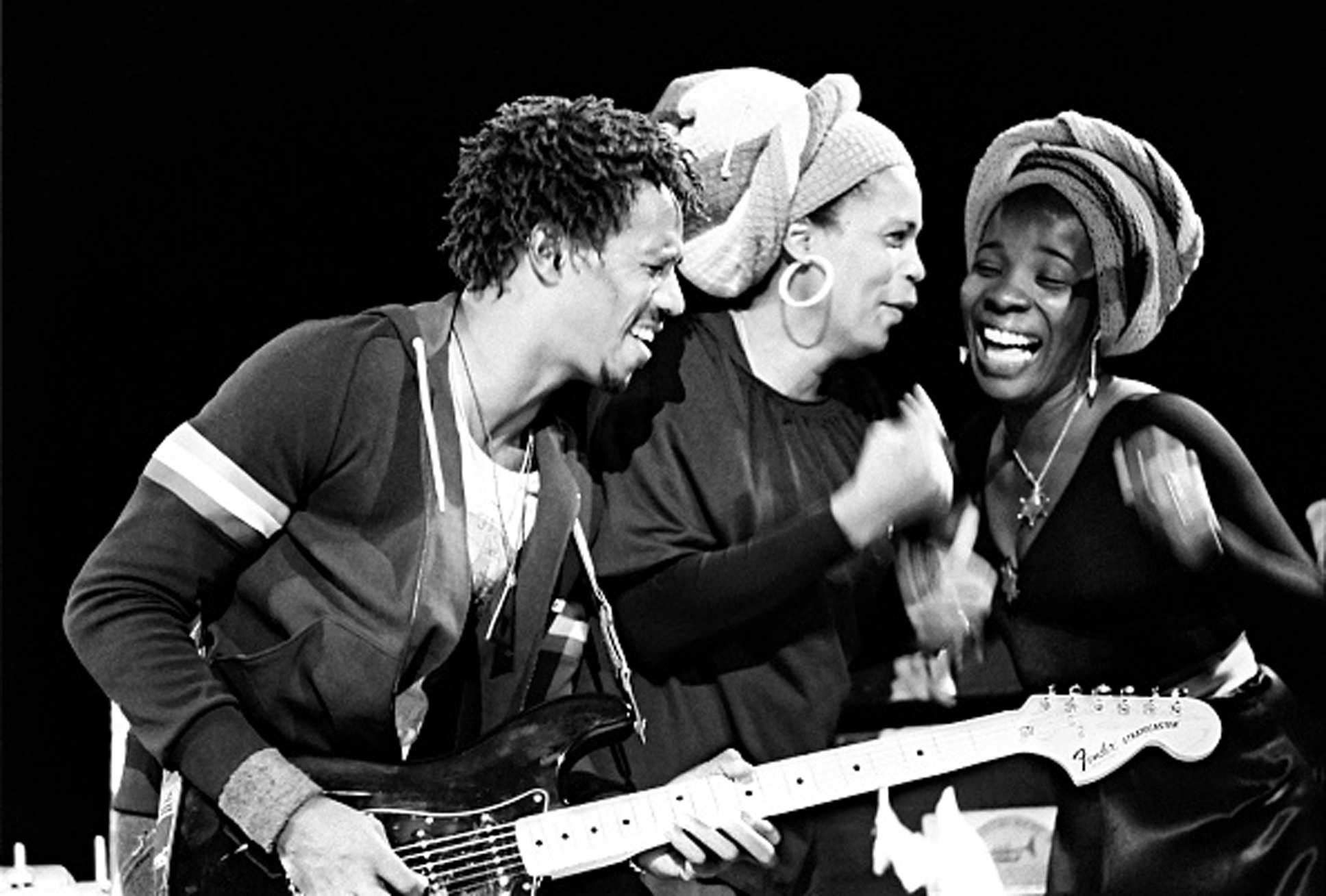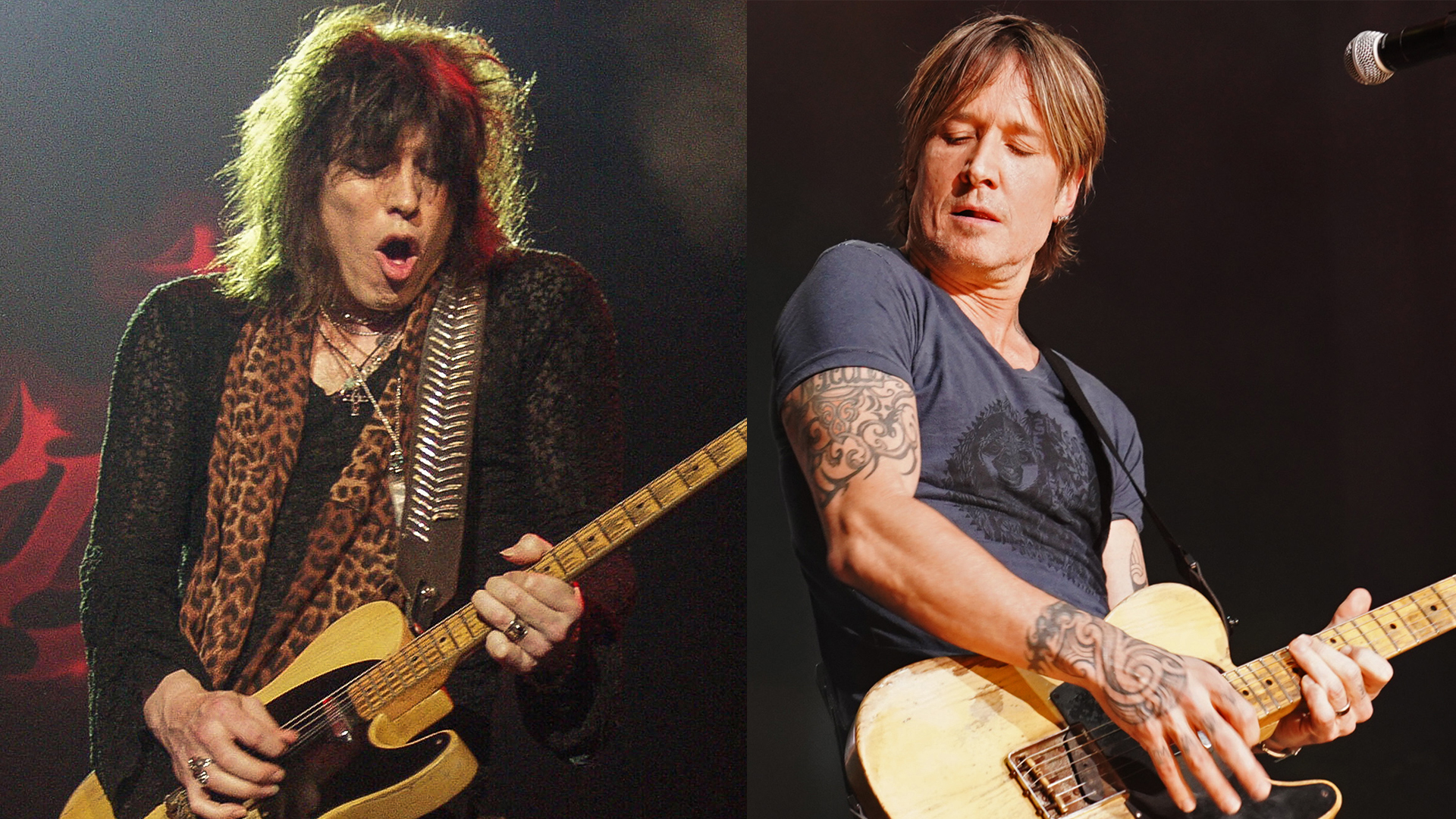“Every guitar that had been in Jamaica had to be pulled apart and rebuilt because of what the humidity there did to the electronics.” Pedal legend Roger Mayer reveals how he perfected Bob Marley's guitar tone for 'Exodus,' his global breakthrough
Mayer also explains how Junior Marvin brought a rock vibe that gave Bob the "international sound" he craved

Roger Mayer is a legend. His innovations include the Octavia, a groundbreaking fuzz box that doubled signal frequencies, a sound not obtainable previously. Mayer and his effect heavily shaped albums like Jimi Hendrix's Axis: Bold as Love and Electric Ladyland. And then there’s his work with the Isley Brothers, whose guitar sound was tonally linchpinned by Hendrix and Mayer’s effects.
Those sounds influenced a young gun named Junior Marvin, who Mayer worked with in the mid 70s and who would be drafted into Bob Marley and the Wailers at a time when Marley wanted his group to evolve from what Mayer describes as a "raggedy-assed" musicians to proper reggae icons.
Mayer started from square one, tearing down Marley's rig and ensuring all involved in his midst were quite literally playing in tune. The result was what Mayer likens to perfection.
"When everything else is perfect, recording a song is pretty simple," he tells Guitar Player. “There’s nothing special about that for me," he says. "Anybody could walk into a recording studio, hit record, and if the other things are perfect, it's gonna sound good."
It's hard to argue with that, considering Mayer's work on Marley's iconic 1975 record Exodus. "I did everything I could in the studio to talk to Bob and Junior about how they could dial in what they heard in the brains," he says.
Mayer did the job. Exodus catapulted the Wailers from a poorly produced group from the beaches of Jamaica to a powerhouse. The result was the album's title track reaching number one in Jamaica, number 14 in Germany, and the top 20 in the U.K.
Exodus's laid-back vibe meshed perfectly with Marley and Marvin's inspired guitar playing. As a result, tracks like "Three Little Birds," "Jammin'" and "Waiting in Vain" became Marley classics — and FM radio staples.
All the latest guitar news, interviews, lessons, reviews, deals and more, direct to your inbox!
Mayer is aware of all of this — and he'll be the first to tell you that he had a feeling about Exodus from the jump, meaning greatness wasn't just intended but inherent. "That record is very well thought of," he beams.
"I knew what a hit record sounded like. We had all the puzzle pieces come into place. Like with Hendrix and the Isley Brothers, I'd helped, but it wasn't a mistake that it sounded that good."
— Roger Mayer
"I knew what a hit record sounded like. We had all the puzzle pieces come into place. Like with Hendrix and the Isley Brothers, I'd helped, but it wasn't a mistake that it sounded that good."
How did you find yourself in the engineer's chair for the recording of Bob Marley's Exodus?
I had a relationship with Junior Marvin before Junior signed on to work with Bob. We'd finished recording some original material in England in December 1976, so we'd spend a lot of time together while recording, alternating between New York and London.
Were you familiar with Bob going in?
With Junior, we'd recorded at Music Mountain in Jamaica, at Electric Lady in New York and Island Studios in London, so yeah, I was aware of Bob Marley through all of that. I'd come to see him a few times, and I knew Chris Blackwell [founder of Island Records and Bob Marley cohort]. Junior knew Chris too. But it wasn't until after we finished the record with Junior, and he signed on with Bob Marley and the Wailers, that I got to work with Bob.

Having worked with Junior before, do you have a good idea of how to get him to align with Bob's goals?
Junior was recruited into Bob's band to provide the rock and roll aspect to the Wailers, which they were lacking. Before the recordings started, Bob was aware that he needed to change direction so that the music had more international appeal.
They came to be because, obviously, they'd heard the work I was doing with the Isley Brothers, Rick James, Parliament Funkadelic, and all those bands that had crossed over into the mainstream market. When I went to America with Jimi Hendrix back in '68 and then worked with Stevie Wonder, these were artists who had ties to Motown and were given free rein.
To paint a picture, the idea was that Black artists in the '70s had a very difficult time in America as far as getting recognition because the music charts were more into white rock 'n' roll than R&B and soul. It was spread apart. So after Junior joined the Wailers, it helped because they became a bit more rock 'n' roll.
"Black artists in the '70s had a very difficult time in America because the music charts were more into white rock and roll. After Junior joined, it helped because they became a bit more rock 'n' roll.
— Roger Mayer
You helped dial in Junior's rig on the recording, right?
After Junior joined, I sent him some of what they requested, which was some new equipment. I went and bought some guitars for Junior in New York and sent them to him after I'd modified them.
Modifications and sounds like you’d used with Jimi Hendrix and Ernie Isley?
That included some of the effects we'd used with Ernie Isley and Jimi Hendrix. And then, of course, everybody started to sit up and say, "Yeah, well, who is this new guitar player that Bob Marley's changed to?" Junior was a bit more rock 'n' roll and was a complete departure from Bob's previous records.
You were close to Junior, but did you get on well with Bob?
Everything was going very well. I got invited down to Jamaica to meet Bob just before the One Love concert, and that's when I first met him. He was a very charming guy. I asked him, "What exactly do you want me to do? How can I help you?"
Bob said, "I want to sound more international." That was the right answer, mate. I said, "For you to go forward in music and take a step forward — especially in record sales and international recognition — you have to have a record that sounds great.”
I told him, “It has to stand up to the quality of what's around." He couldn't just come from an island and not have the same technological advantages that everybody else had. If he did that, his record would have sounded a big amateurish.
So the goal with Exodus was not just to overhaul Bob's sound but to showcase what Junior brought to the party en route to national recognition.
Bob's early albums were kind of tolerated because they came from the islands, you know what I mean? People didn't expect the records to have the same sonic qualities that all the other top artists had, or some of the other artists I was working with. So, yeah… that's how I got roped into it. [laughs]

What was the first order of business once you were in the studio?
The first thing I did after meeting Bob was completely set up all the guitars for him. I'd listened to the band live and said, "The whole band's completely out of tune. For us to go forward, the first thing to do is make the band solid, if not perfect."
In reggae, that's very important, as it is with any music oriented by bass. The bass and drum sounds had to be perfect, or else you lose the magical quality of the beat. The bass guitars had suffered being in Jamaica and needed a lot of work, so we started with that.
What was it like working on Bob and Junior's guitars?
I wanted to fix that up to give off a really authentic, top-quality sound. I moved on to Bob's guitars because Junior already had a guitar that I'd previously modified and had been used in concert and in the studio. I went through all of Bob's guitars, tuned them up, and rebuilt the whole guitar.
Every guitar that had been down in Jamaica for years had to be completely pulled apart and rebuilt because of what the humidity in the tropics would do to the electrics in the guitar. Once I made sure the band was mechanically sound, and actually in tune, and sounded perfect with all the harmonics resonating, that's when we could really get started. That was the beginning of it.
“That's why every track we recorded with Jimi Hendrix sounds so accessible. It's not just a case of buying a pedal, plugging it in, and playing. It's more complicated than that.”
— Roger Mayer
How did that inform the way Junior and Bob approached songs like "Waiting in Vain," "Three Little Birds," and "Jammin'?"
My job was working with Junior to get the right guitar sounds and with Bob. Once Bob's guitar was perfectly in tune, his approach to the song became different because of the way he played. The feeling, solos, and overall feeling of the record became different. This might sound mundane, but you can only record what's there.
In my case, the actual job became making good sounds, and after that, it was recording the sound. I didn't have to do anything. The bass and guitar sounds were perfect. Bob set the people up to play the vibe, and the performances were amazing—much better than before because they were all playing in tune.
Was there a trick to getting the most out of Junior, or was it all mostly free-form and vibe-based?
They were all very highly attuned to the vibrations and the perfection of it all. So, while putting together the tracks, Junior and I would go into the studio and discuss what he wanted to do, for example, "Waiting in Vain" or "Three Little Birds." Those tracks have my touch on them with the various guitar tones, and we worked together to select the perfect tones for each track.
What went into the selection process?
That's one of the secrets! You have the have the ability, and in my case, technical ability, to change the tone, and make it fit the track. That's why every track we recorded with Jimi Hendrix sounds so accessible. It's not just a case of buying a pedal, plugging it in, and playing.
It's more complicated than that. It's having the knowledge of being in the studio and using recording equipment and consoles to know exactly what sound you have to produce in the studio to make it come out well on record.
So if it wasn't just pedals, what was it?
You have to have a whole knowledge of the whole process of recording. It's about knowing where to put microphones and how they should sound in the studio. You had to really, really know how with some of these bands back then, you know, with how to actually tailor the sound so that they can record a song.
While putting together Exodus, did you have an inclination that you were helping make a special record?
Yeah, but at the same time, I'd been in the studio many times before when lots of famous records were made. I wasn't new to what a hit record sounded like. I had a good idea of what it should sound like, so, yeah, Exodus, after the tracks were put together, sounded really good. But the magic of Exodus isn't just that it's a really good collection of songs; there's more to it than that.
Expand on that for me.
Remember: A lot of the songs on Exodus have been recorded before. They weren't new. There were previous incarnations of "Three Little Birds," from what I remember. The difference, I think, with Bob and Exodus was the actual sound of that record. It's perfect. It sounds great.
The sound of the music, and the beat, just the whole thing, makes that record sound international. It doesn't sound like a raggedy bunch of Jamaican musicians. It's interesting and culturally different, but before that, they weren't producing the international quality of music that sounded like that.
Having said that, what are you most proud of when you look back on Exodus?
I've been involved with many records, but I've been involved with very involved in three or four, like, really great records, I think. Exodus is great. The sound of it is just unbelievable. But these things don't happen by accident, right? It doesn't happen by mistake.
The people involved in that record weren't just fortuitous; my sound, equipment, and electronics are on so many hit records. That's not me boasting; it's just the truth. But Bob and Junior were a pleasure to work with and making that record didn't happen by mistake.
It's like they say: you could get a well, a well-nourished orangutan with a pencil and a piece of white paper is not going to make a great picture. It was all the right pieces at the right time. It doesn't happen otherwise.
Andrew Daly is an iced-coffee-addicted, oddball Telecaster-playing, alfredo pasta-loving journalist from Long Island, NY, who, in addition to being a contributing writer for Guitar World, scribes for Rock Candy, Bass Player, Total Guitar, and Classic Rock History. Andrew has interviewed favorites like Ace Frehley, Johnny Marr, Vito Bratta, Bruce Kulick, Joe Perry, Brad Whitford, Rich Robinson, and Paul Stanley, while his all-time favorite (rhythm player), Keith Richards, continues to elude him.
